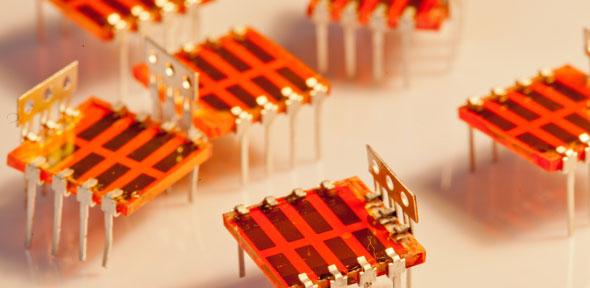Bismuth is considered as a “green-element” and bismuth-based compounds are gaining attention as potentially non-toxic and defect-tolerant solar absorbers. The researchers of the University of Cambridge and the United States developed theoretical and experimental methods to show that bismuth, which sits next to lead (Pb) on the periodic table, can be used to make inexpensive solar cells.
The study suggests that solar cells including bismuth can have all the exceptional properties of lead-based solar cells but without any worries about toxicity. Another study by a different group discovered that bismuth-based solar cells have the ability to achieve a conversion efficiency of 22% which is comparable to the conversion efficiency of most advanced solar cell available in the market.
Many of the new materials recently investigated show limited photovoltaic performance. Bismuth Oxyiodide (BiOI) is one such compound and it is explored in detail through theory and experiment. Most of the solar cells commercially and domestically used are made from silicon (Si) which is efficient enough but has very low defect tolerance compared to bismuth oxyiodide. Low defect tolerance in silicon implies that the silicon needs to have very high levels of purity, making the production process energy-intensive.
Over the past several years researchers have been looking for an alternative to silicon for making solar cells cost effectively. The most promising group of these new materials are called hybrid lead halide perovskites. Unlike silicon, they don’t need such high purity levels. Hence, production is cheaper. But, the lead contained within perovskite solar cells represents a definite risk to all living beings and the environment. So, scientists are searching for non-toxic alternatives without compromising the performance.
Dr. Robert Hoye of Cambridge’s Cavendish Laboratory and Department of Materials Science & Metallurgy said,
Read more: Bismuth Oxyiodide (BiOI)—A Non-toxic Alternative To Solar Cells

